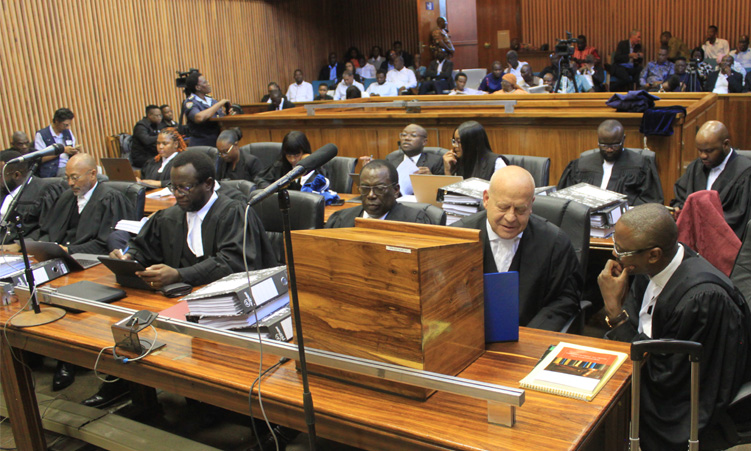In this series of articles, Cameron Kotze – the Tax Partner at Ernst and Young – discusses some topical tax issues for our readers.
WHILE Namibia has just recently introduced transfer-pricing rules, South Africa introduced similar legislation ten years ago. It took some time for South African taxpayers to start complying with the rules, with the result that many were unprepared for the investigations that ultimately took place and unpleasantly surprised by assessments and significant upward adjustments to their income.Namibian companies would be wise to take heed of the dangers of the wait-and-see approach and to begin assessing the arm’s-length nature of their transactions with foreign group companies.The general basis of transfer pricing is to be found in the arm’s-length principle that creates a hypothesis of the open market to be adopted to benchmark transactions between connected persons.The arm’s-length principle basically compares the commercial and financial relations between associated enterprises to those between independent enterprises, to determine what would have been an arm’s-length price for the goods or services.Non-compliance with the arm’s-length principle could result in an adjustment being made to the taxable income of the taxpayer.In practice the imposition of penalties depend on the taxpayer’s level of disclosure and bona fides.As such the imposition of penalties in South Africa has been largely discretionary, other than interest that is generally levied at the statutory rate on the underpayment of income tax.The Namibian Income Tax Act also provides for interest on late payment and penalties on the underpayment of income tax.Currently in South Africa, a major bone of contention relates to the question whether it is compulsory for a taxpayer to submit a transfer-pricing policy document with its tax return, with some commentators arguing that the disclosure requirements in the annual tax return, read with certain sections in the Income Tax Act 58 of 1962 (“the Act”), make it compulsory, while others argue that a mere disclosure of the transactions and the general terms and conditions should suffice.Recently the SARS issued an addendum to PN 7, stating that the submission of a transfer-pricing policy document is not compulsory in instances where no such document exists.If however, the taxpayer is in possession of such a document, it has to be lodged with the annual tax return.While, on the face of it, the addendum creates certain anomalies, the SARS made it clear that it is in the taxpayer’s best interest to prepare and maintain contemporaneous documentation.The existence of adequate documentation limits the taxpayer’s risk of a detailed examination of its transfer prices and makes it easier for the taxpayer to rebut the SARS adjustments to its prices.Furthermore, there are practical reasons to keep contemporaneous documentation, such as the information requests in the annual tax return, which a taxpayer would not be able to comply with if he has not addressed the question of whether its dealings comply with the arm’s-length principle.Therefore, although the Namibian tax system also operates on the basis of self-assessment and at this stage there is no explicit requirement to prepare transfer-pricing documentation, it equally makes sense for Namibian taxpayers to review transfer prices in order to avoid detailed inspections, interest and penalties.It is very likely that the Receiver of Revenue will adopt a similar approach to the SARS and initially focus on high risk transactions, i.e.transactions with connected persons in low tax jurisdictions; management fees, interest-free loans etc, and thereafter as their experience grow focus on specific industries.Transactions with South African companies must be regarded as low-hanging fruit for the Receiver of Revenue, due to their frequency and the fact that the corporate tax rate there is 29% compared to our 35%.Inspections may follow years after the actual transactions took place and as such the justification of the arm’s-length nature of such transactions may become increasingly difficult.Once initiated, inspections can be very time consuming and may drag on for months or years before being settled.* Should readers have queries, they are invited to send them to cameron.kotze@za.ey.com.It took some time for South African taxpayers to start complying with the rules, with the result that many were unprepared for the investigations that ultimately took place and unpleasantly surprised by assessments and significant upward adjustments to their income.Namibian companies would be wise to take heed of the dangers of the wait-and-see approach and to begin assessing the arm’s-length nature of their transactions with foreign group companies. The general basis of transfer pricing is to be found in the arm’s-length principle that creates a hypothesis of the open market to be adopted to benchmark transactions between connected persons.The arm’s-length principle basically compares the commercial and financial relations between associated enterprises to those between independent enterprises, to determine what would have been an arm’s-length price for the goods or services.Non-compliance with the arm’s-length principle could result in an adjustment being made to the taxable income of the taxpayer.In practice the imposition of penalties depend on the taxpayer’s level of disclosure and bona fides.As such the imposition of penalties in South Africa has been largely discretionary, other than interest that is generally levied at the statutory rate on the underpayment of income tax.The Namibian Income Tax Act also provides for interest on late payment and penalties on the underpayment of income tax. Currently in South Africa, a major bone of contention relates to the question whether it is compulsory for a taxpayer to submit a transfer-pricing policy document with its tax return, with some commentators arguing that the disclosure requirements in the annual tax return, read with certain sections in the Income Tax Act 58 of 1962 (“the Act”), make it compulsory, while others argue that a mere disclosure of the transactions and the general terms and conditions should suffice.Recently the SARS issued an addendum to PN 7, stating that the submission of a transfer-pricing policy document is not compulsory in instances where no such document exists.If however, the taxpayer is in possession of such a document, it has to be lodged with the annual tax return.While, on the face of it, the addendum creates certain anomalies, the SARS made it clear that it is in the taxpayer’s best interest to prepare and maintain contemporaneous documentation.The existence of adequate documentation limits the taxpayer’s risk of a detailed examination of its transfer prices and makes it easier for the taxpayer to rebut the SARS adjustments to its prices.Furthermore, there are practical reasons to keep contemporaneous documentation, such as the information requests in the annual tax return, which a taxpayer would not be able to comply with if he has not addressed the question of whether its dealings comply with the arm’s-length principle.Therefore, although the Namibian tax system also operates on the basis of self-assessment and at this stage there is no explicit requirement to prepare transfer-pricing documentation, it equally makes sense for Namibian taxpayers to review transfer prices in order to avoid detailed inspections, interest and penalties.It is very likely that the Receiver of Revenue will adopt a similar approach to the SARS and initially focus on high risk transactions, i.e.transactions with connected persons in low tax jurisdictions; management fees, interest-free loans etc, and thereafter as their experience grow focus on specific industries.Transactions with South African companies must be regarded as low-hanging fruit for the Receiver of Revenue, due to their frequency and the fact that the corporate tax rate there is 29% compared to our 35%.Inspections may follow years after the actual transactions took place and as such the justification of the arm’s-length nature of such transactions may become increasingly difficult.Once initiated, inspections can be very time consuming and may drag on for months or years before being settled. * Should readers have queries, they are invited to send them to cameron.kotze@za.ey.com.
Stay informed with The Namibian – your source for credible journalism. Get in-depth reporting and opinions for
only N$85 a month. Invest in journalism, invest in democracy –
Subscribe Now!









